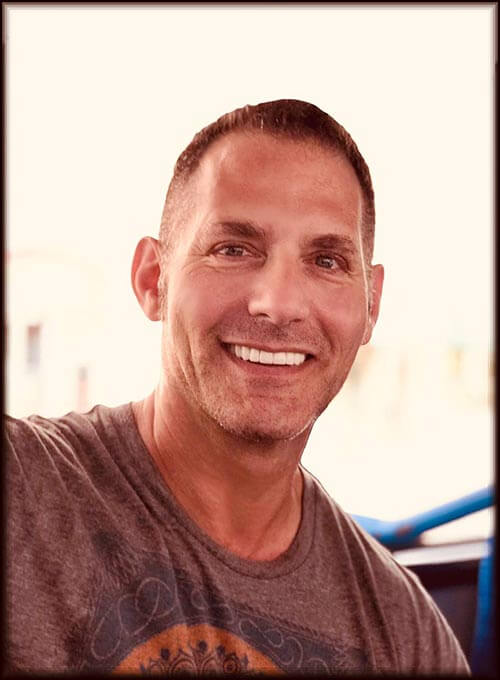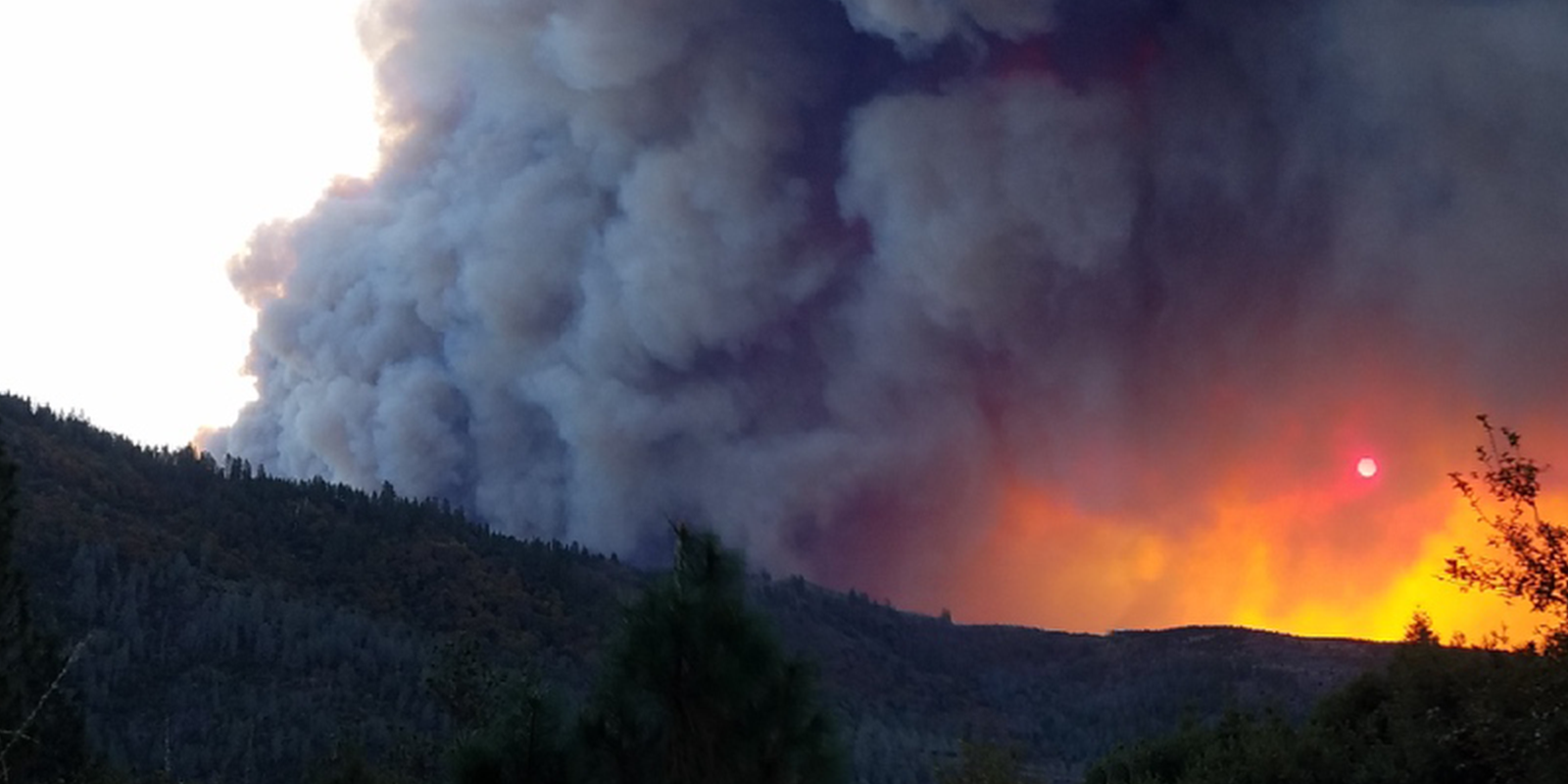
For most of the country, Nov. 8, 2018, might not stand out the same way it does for California social worker Lance Ferris. But for Ferris, who’s based in Chico, California, that was a day that changed his life and the lives of those in his community forever.
On that day, the worst and most destructive wildfire in California’s history, the Camp Fire, destroyed parts of Chico, nearly all of its neighboring town to the east, Paradise, as well as large swatches of Butte County. It was a day marked by extraordinary devastation and extraordinary, enduring acts of empathy by people like Ferris, a winner of a Never Quit Service Award.
For the past 13 years, Ferris, a member and steward of Local 2620 (Council 57), has been the only social worker in an outpatient clinic whose goal is to help parolees leaving the California Department of Corrections and Rehabilitation transition back into society. It’s a job that requires skill, focus and a deep well of empathy every day. And as the only clinical person in his office, it’s a role that can be isolating.
“I work on behalf of folks who have been incarcerated who are reintegrating into the community,” says Ferris. “[Their crimes] could be anything that’s low level, or even lifers who are getting out of prison. I provide individual and group therapy and case management services.”
No matter who his clients are or what their crimes might have been, Ferris approaches each with the same professionalism and clinical poise.
“How I feel about their offense is off the table when I’m working,” says the Brooklyn native. “I’ve always been able to create a space for people to have real therapy. That’s been the core of the work I do. That’s my training, who I am, and what I’m committed to. I work very hard at it.”
Ferris has been involved in his community for many years, counseling patients in a private practice he runs in addition to his job at the Department of Corrections and facilitating yoga and cycling classes as well. Despite being a college town, this semi-rural region of Northern California lacks for many of the resources you’d see in larger cities. It’s a place where residents, many of whom are retirees, prize their independence and can live a life off the grid.
But when the Camp Fire ripped through his community, leaving almost 90 people dead, destroying tens of thousands of structures and leaving tens of thousands more homeless, the trauma that permeated the area’s residents meant they needed to come together quickly.
“We’ve never seen anything like this,” says Ferris. “I’ve never seen this level of trauma.”
It was a community full of neighbors who’d lost loved ones or whose loved ones were missing; people whose homes and lives had been destroyed; a community wiped out; and first responders grappling with doing their jobs yet stunned by the horrors they’d seen.
Faced with an unprecedented crisis, Ferris did what he knew how to do best: he counseled people.
“I made myself available to do trauma work,” said Ferris, who was uniquely qualified to address many of the crises his fellow residents and first responders were experiencing. “I do a very special intervention called ‘Brainspotting.’ It has a great efficacy in reducing primary and second trauma with survivors of natural disasters.”
In the days, weeks and months to come after the fire, Ferris found himself holding counseling sessions for community members in need at his office or elsewhere throughout the town. Whether it was someone who’d become homeless after the fire, or someone who’d lost a pet, Ferris used his broad set of clinical skills to try to comfort the person sitting across from him.
“Suddenly, you saw folks who’d wanted to live a quiet life off the grid needing help,” he said.
Ferris said that the gyms where he taught yoga were now filled with people who’d come down from Paradise with nowhere else to go. While the trauma his clients faced after the fire differed from the parolees he counseled, the attention he paid to them and his rigorous approach to their therapy remained the same.
“If you take a look a trauma, there was the initial impact of the fire, but now they are rebuilding their lives. People are being triggered off the wall. It’s big,” said Ferris.
In nominating Ferris for the Never Quit Award, fellow Local 2620 member Deanna Stilwell wrote that Ferris’ job is challenging as it is. After the Camp Fire, “Lance immediately went into high gear, where he continues to give extraordinary care on a daily basis to a vulnerable population whose lives were turned upside down in seconds,” Stilwell wrote.
Nine months later, life still isn’t back to normal in the region. Much of the area in Butte County that the fire had torn through is still in ruins. While the rest of the country has moved on, Ferris and his neighbors haven’t. He’s returned to work now, resumed his life, but there are no pat endings to his community’s story.
“The aftermath was frightening for months. The impact has been huge,” said Ferris. “Where do you land? I still don’t have the answer.”
